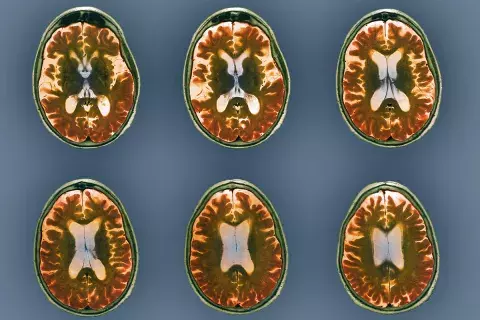Young-onset dementia: new risk factors identified
By Melanie Hinze
A range of previously unidentified risk factors have been found to be associated with young-onset dementia, according to research published recently in JAMA Neurology.
The prospective cohort study used data from the UK Biobank from a total of 356,052 participants aged younger than 65 years (55.3% women) who had baseline assessments between 2006 and 2010. Follow up continued to 2021.
During the study period, 485 incident cases of young-onset dementia were observed, which equated to an overall incidence of 16.8 people with young-onset dementia per 100,000 person years.
The researchers identified 39 potential risk factors from systematic reviews of late-onset dementia and young-onset dementia risk factors and grouped these into domains of sociodemographic factors, genetic factors, lifestyle factors, blood marker factors, cardiometabolic factors, psychiatric factors and other factors, including traumatic brain injury, hearing impairment and handgrip strength. In their final model, they found that 15 of these risk factors were significantly associated with a higher risk of young-onset dementia.
Associate Professor Samantha Loi, Principal Research Fellow at the Melbourne Neuropsychiatry Centre and Neuropsychiatrist at the Royal Melbourne Hospital, said that of the 15 risk factors found, some were not surprising. Previously-known risk factors for older-onset dementia included low socioeconomic status and cardiovascular risk factors (stroke, diabetes, heart disease), frailty and depression and homozygous apolipoprotein E4 alleles.
‘The other factors such as vitamin D deficiency, social isolation, hearing impairment, orthostatic hypotension, high C-reactive protein and alcohol use are intriguing,’ Associate Professor Loi added.
She said there was increasing evidence of social isolation and hearing impairment being risks for older-onset dementia, but this had not yet been replicated in other young-onset dementia studies.
‘Additional surprising results were that moderate-to-heavy alcohol use was associated with a lower incidence of young-onset dementia and “alcohol-use disorder” was associated with a higher risk of young-onset dementia,’ she told Medicine Today.
Associate Professor Loi suggested that more detailed research into the temporal relationship between alcohol use and young onset dementia, and the quantification of alcohol and young-onset dementia risk was needed.
She said that although there had been recent research suggesting that mild alcohol consumption may be protective for dementia risk at older age, heavy alcohol use might still be associated with increasing dementia risk.
‘The jury is still out on the relationship between alcohol and dementia risk due to heterogeneity and confounding factors in studies,’ she said.
‘In lieu of these results, I would still encourage GPs to maintain the current guidelines on safe alcohol use, which is no more than 10 standard drinks per week with no more than four standard drinks on any one day,’ said Associate Professor Loi.
She added that optimising cardiovascular health was an important preventive for dementia in both younger and older people, as well as when people do develop dementia.


